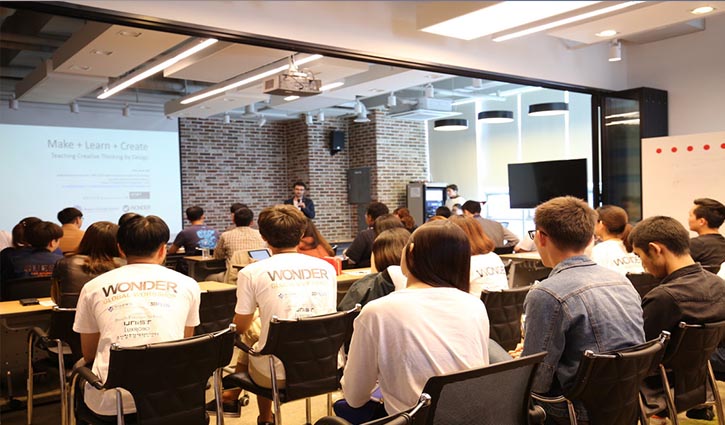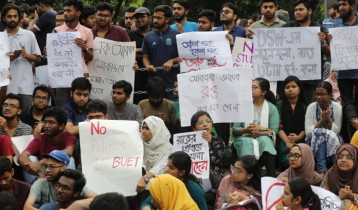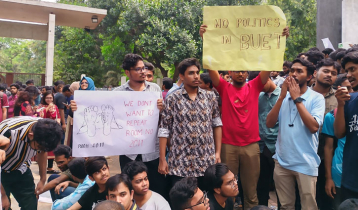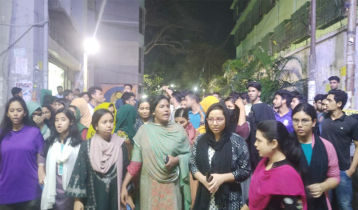Workshops are not enough
T. Mahmud || risingbd.com

After reading the title, some of you may think, “What is this individual talking about?” Workshops are informative and they help people become more aware of certain matters. If that’s the case, then how can the writer claim the opposite? Let me explain.
I’m not saying that workshops, regardless of what they’re about, are flawed in totality. I do agree that they’re very useful for educating the public about a particular topic. They may also leave a significant impact on some people. However, workshops are a short-term solution for a long-term problem. People may attend a workshop and learn something new, but after a week passes by, the majority of them are likely to forget about everything they have been told. As a result, the desire to make changes won’t be as strong as it was when they initially came across that workshop.
I would say this is especially the case with schools in Dhaka. Even though a lot of schools here are known to have produced high-achieving students for decades, the vast majority of them aren’t effectively solving some of the issues that schools commonly have to deal with. Examples include promoting inclusion, addressing mental health concerns, and reducing bullying. “Raising awareness” about such matters once in a while by hosting workshops is not sufficient to make long-lasting changes.
To counter this problem, I would highly recommend schools in Dhaka to start adopting whole-school approaches.
Researchers differed when it came to defining “whole-school approach”. Definitions ranged from “the provision of guidance for all students rather than just for students with problems” (Crawford & Hui, 1991) to “total school guidance, stressing the importance of adopting a whole-curriculum view which addresses the personal and social development of students” (Watkins, 1994). Due to the many positive results from using whole-school approaches, many researchers advised that they be implemented in educational settings. Instead of the teachers being the problem-solvers, whole-school approaches encourage every member of the school to bring about change. This means that students, parents, teachers, and even staff members all have a responsibility towards making the school a safer and more empowering environment for everyone. To help you gain a better understanding about the effectiveness of whole-school approaches, the following paragraphs will use the issues mentioned in the previous paragraph for clarity.
Among the benefits of using a whole-school approach is that schools would become a more inclusive environment for students with special educational needs (SEN). If inclusive practices are appropriately integrated within a school’s system, students with SEN would not only be able to develop a sense of belonging but would also have their learning needs met. It’s important that students with SEN build stronger relationships with their peers, as such relationships can impact a student on an intellectual, personal, and emotional level. Students with SEN may also find that their resilience skills and emotional stability improve when they befriend other students without SEN. This is because those two qualities are typically achieved when friendships are formed.
Whole-school approaches are also advantageous when it comes to addressing students’ mental health concerns. If a school consistently promotes a positive physical and social environment, then occurrences of depression and anxiety among students tend to lessen. A curriculum that combines educational resources and mental health initiatives would especially be helpful for students who struggle with mental health. Given the rise in mental illnesses and adolescents having a high risk for developing anxiety or depression, implementing a whole-school approach would be ideal.
Bullying also tends to reduce after implementing whole-school approaches. Whole-school approaches acknowledge that bullying is a systematic problem, as opposed to it being an individual issue. They also point out that external factors contribute to bullying instead of the student’s psychosocial problems. Introducing anti-bullying policies wouldn’t be sufficient to reduce bullying in a school, unless they have some sort of a framework. This framework should encourage every school member to practice problem-solving skills, good behaviour, and cooperation when conflicts arise. Additionally, whole-school approaches that are based on promoting emotional intelligence and non-aggressive methods for resolving conflicts would effectively tackle school violence.
Now that you have a better understanding of whole-school approaches, you may begin to wonder if they can also improve a student’s academic performance. Before I move on to that part, I want to raise a point. I do agree that academic performance is important, but it doesn’t wholly define a school or a student. A school isn’t just a place where students study and sit for exams. Rather, it’s also an environment that influences a student on a spiritual, emotional, social, and personal level. You have to remember that students are not robots. All of them (despite differences in personality, lifestyle, and socioeconomic background) have needs that must be catered to. Schools which do not properly address the common issues that many students experience can never be successful. Even if they have a top ranking, it wouldn’t matter as much if a child feels unsafe or unhappy in those environments. That discomfort may eventually start affecting his/her performance in school. This is, unfortunately, the reality of many schools in Dhaka. Too much emphasis is given on a child’s academic performance and very little to his/her individuality and role in society.
Coming back to what I had mentioned previously about academics and whole-school approaches, whole-school approaches do have a positive impact on students’ academic performances. In a study by Dix, Slee, Lawson, & Keeves (2011), an Australian primary school mental health program called “KidsMatter” was implemented for improving student wellbeing and mental health. They found that students showed improvements in their schoolwork after this program was implemented. In fact, Year 3 students from schools that had used KidsMatter were seen to be 2.6 months ahead in academic achievement than those students who went to schools that did not implement KidsMatter (Dix et al., 2011).
In conclusion, workshops are great for raising awareness about a particular subject. However, they won’t bring about long-term changes. Whole-school approaches, on the other hand, would be more ideal since they emphasise systematic action and change. Schools in Dhaka are already doing well in terms of helping students develop their intellectuality. Despite that achievement, however, the majority of the latter are not given the correct knowledge to deal with common issues that occur in schools (such as bullying). If a student is deprived of adequate support in other areas of his/her life, then their academic performance and sense of identity would both be negatively impacted. Schools in Dhaka should therefore work towards implementing whole-school approaches that help students thrive in every way. With consistent efforts towards improving both the school environments and curriculum, Dhaka would likely see positive changes in education quality.
Dhaka/Mukul






































